I stopped blogging about food events a while ago. They simply stopped inspiring me. I wasn’t learning much and other than a fun social event, I’d walk away with a belly full and a soul untouched. Finally, an event last week had me inspired again. Thoughts of the evening have swished around in my mind all week like a fine aged wine whose aromatic complexity improves over time. I finally had to sink into my chair, uncork the words and decant the experience to understand why it had such an impact on me. Here’s what happened.
Book Munch Cafe recently launched a series called Cook The Books: “an ongoing series of events hosted by some of the region’s best known foodies who will join diners for specially created menus collated from best-selling titles by chefs…”
The launch event featured a to-be cook book author and a lady whose culinary instinct I truly admire – Dima Sharif. This fellow food blogger is not just someone who has catering, culinary classes and food writing served up for the price of street cred, but a person whose taste buds and intellect I have come to respect through her blog and my interactions with her. Her real-life personality only strengthened my perception of her, with one of my most memorable encounters being over a dinner in Abu Dhabi last year. “If you want to know that this is goat’s milk cheese, just breathe out and you’ll know.” Then I listened to Dima. Then I exhaled. Then I knew it was goat’s milk. Then, at that precise moment, I re-affirmed that Dima seriously knew what she was talking about.
That evening, the menu at Book Munch Café was a tantalizing teaser of the earthy, soulful and strikingly flavourful chords that Dima’s recipes will play across the pages of her still-in-writing Palestinian book. Cubes of tender beetroot lay bleeding on a plate under crunchy diced onions marinated in vinegar, pine nuts and an aromatic sprig of fresh thyme. The meal had commenced with a curtsy to simplicity, textural balance and a profound respect for ingredients, elements that made you want to close your eyes and smell the fields even if you were sitting in a café on field-less Al Wasl Road.
There was an underlying yearning that was voiced through Dima’s impassioned discussion of Palestine, a yearning that was echoed through her menu. The discussion was less of politics, and more of produce, people, and the philosophy that connected the two in an intricate loop that wills every sense of the body to want to return to the homeland.
Dima spoke of a culture that was living and breathing, even if miles away. She spoke of a culture that was sighing the collective fatigued sigh of wanting to return to a land that even I, after hearing Dima speak, desperately wanted to visit. Her stories were humanizing a culture that is often portrayed uni-dimensionally in black and white print as victims or worse, as numbers. These were stories of how marriage proposals were peppered with tests of culinary performance, how nuts were equated with generosity, how childhood was reminiscent of wheat fields. And food made with emotion is that evocative medium that can help you internalize those stories, simple stories, stories as humble as a spoonful of earthy brown lentils simmered in chicken stock.
Those lentils could convey nostalgia and memories from a person yearning to an outsider willing to listen. There is a depth in such experiences, a value in keeping alive and celebrating a culture that is intimately tied to the land in every way – from primal needs to a self-actualizing desire for identity.
The whole brown lentils served alongside the sea bream will stay with me as will my discussions with Dima about hummus, falafels and lgeimat. Nor will I be forgetting the side of pine nut salsa any time soon, a nutty citric combination scooped into the caramelized bulb of fennel that had me dwelling on the dish far after everyone’s plates had been cleared away. I snatched my plate back – I wasn’t finished, I needed time to absorb every flavour of the dish. It wasn’t about being gluttonous, there was a depth to this food that was mirrored by Dima’s discussion and I was eager to drown in it.
By the time my main course was replaced with dessert, my emotions had been fully drawn into the meal, even though my stomach had withdrawn. Clouds of delicately understated butter cream billowed out between two discs of crumbly pistachio cake, the top crowned with a jagged tiara of caramelized pistachio bark. A finyal of rice pudding capped generously with vibrant pistachio slivers was perched alongside, white and green against rose petals strewn along the plate. This dessert had been plated up to be a fairy tale ending. It was an elegant and eye-catching end to heartfelt conversations, almost too sensual for the sort of nostalgic homely stories being told, but true in spirit to the flavours of the culture – pistachio, rose water, mastic.
I left the event light-headed with sleep and fatigue and thoughts far too confused to be sorted out at midnight. But I was inspired enough to stay up and hunt down an online copy of Yotam Ottolenghi’s book on Jerusalem. Since my conversations with Dima, I have rethought how I tell the tale of falafels and hummus on my tours. I think differently now about jalebis or zullabiya, because I am inspired to not just take a medieval recipe at face value – but to read into the natural origin of ingredients. I have definitely reconsidered the salad for my next and yet unplanned dinner party because beets with vinegary onions and thyme deserve a broader audience.
Events like these leave me thinking for days on end. They communicate flavours whose background stories and translation on the plate are so thought-provoking that I lapse into silent moments of tasting and savouring – even at the cost of being lost to the people around me. They attract the sort of people who leave me assured that I have many decades to go before I ever, if I ever, gain as deep an understanding of food and culture as I would aspire to gain. They leave me feeling wildly hungry to learn more, in this case about Palestinian stories tied to the heart and the hearth.
That is what an event woven around heartfelt stories and soulful food can do to you. It can leave you feeling nostalgic and inspired, even if the stories and the culture belong to someone else.
Thank you Dima for an inspirational evening – I wish you the very best of luck for your book. When you do launch it, I will be one of the first hungry birds to peck through its pages. And all my wishes and thanks to Fiona – in whose presence I always feel a massive wave of positive energy, a reckless rush of motivation, and a humbling sense of who a ‘real’ food personality is – not necessarily one who you may glimpse at many a PR event, but someone who is wildly passionate and invests that passion into people and causes with care.


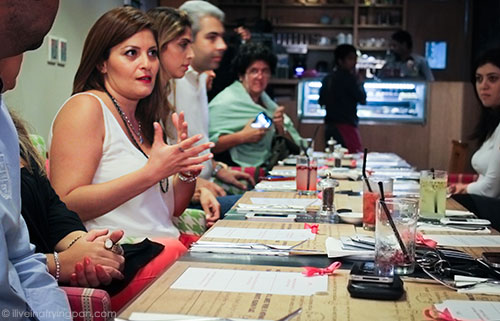
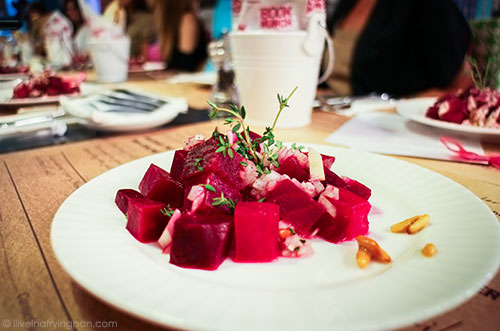

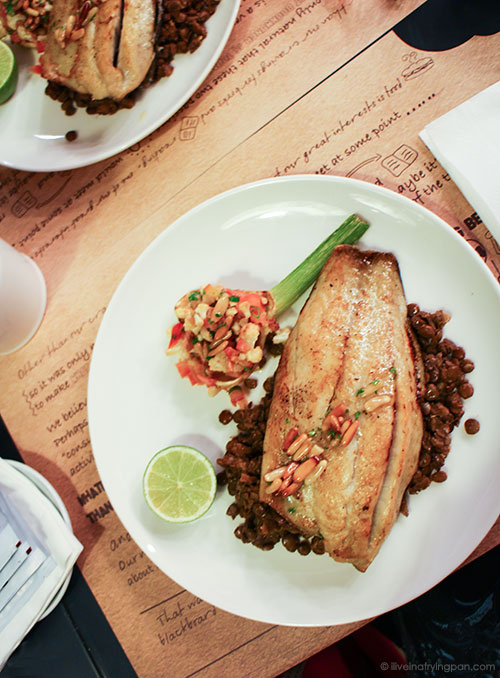
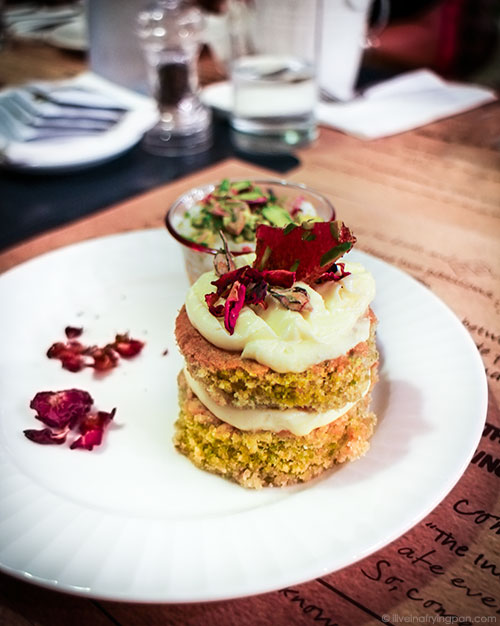
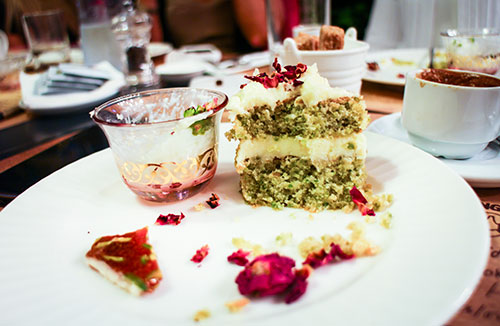
sounds like a fabulous evening, as ever a beautifully written piece, good luck to Dima too I look forward to seeing the book
Wow! Arva, I am speechless! Really generous with your words as ever, and even more so with your feelings and that can only come from a generous soul like yours. You have always been and always will be a writer I respect, your expression and touch with emotions are always inspiring. I am honored and deeply humbled by such compliments.
It is always inspiring (both ways) to talk to people who will get you, who will look beyond the discussion and look for what to take from it and how such talks enrich our understanding of things. As ever, I view food as a mirror or a door way to culture, the two cannot be separated, especially when we talk cuisine. This is where food is interesting, beyond just the shallow pleasures of the taste buds. Food is interesting when it teaches us stories, when it narrates history and ultimately when it connects us as people. This is the essence of food and how I fell in love with it.
Thank you for coming to the event, and for this beautiful article, and mostly thank you for your belief and trust in my still in the making book. Your support and words of encouragement mean the world to me :)
You are a gem x
You deserve the praise Dima, and Amen to the connection you’ve drawn so eloquently between food and culture!
With the kind of passion and knowledge you have, I have the strongest feeling that your book is going to blow people away. Good luck and may the next event be your book signing!
Ah Arva! As we say Inshallah :) Thank you love for all your sweetness x
Beautifully written post Sizzler. I had read it in the car, re-read it many times. Dima is an amazing teacher – I have seen her talk about food with so much of passion and enegry, that it’s infectious. I missed the event and I so regret it. Reading the post mdoes make me feel so much better. If someone takes an effort to create an event like this, it’s only worth it when aficionados like you attend it, write about it in such a soulful way and share it with others. BTW, the Beetroot salad looks like a dream.
I love you too Ishita :)
Loved reading this article, very inspiring women. best of luck!
Would have loved to see you there, look forward to meeting you :)
I love Dima’s food – and she is an instinctive cook with a precise and encyclopaedic knowledge of tastes, food history and technique. I have Jerusalem and cook from it regularly – you are welcome to borrow – it truly is about bringing understanding of divided lands through food (and btw Yotam used to work for Yael!)
Your food descriptions are wonderful – the jagged tiara of caramelised pistachio
Love you Sally Always :)
you write beautifully Mashallah
Thank you!!